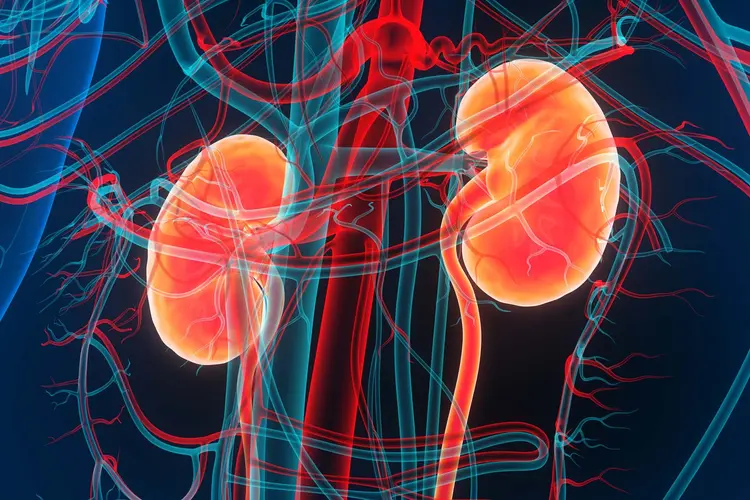High blood pressure and kidney issues specialist

High Blood Pressure and Kidney Issues Specialist in Nagpur – Dr. Rohit Badge | Kidney Healthcare Clinic
High blood pressure and kidney diseases are deeply interconnected health conditions that significantly impact each other. Although hypertension may appear manageable in the beginning, it can gradually damage the kidneys if left untreated. Therefore, early diagnosis, proper treatment, and expert supervision become essential to break this harmful cycle and protect long-term health.
High blood pressure and kidney issues specialist visit Dr. Rohit Badge’s Kidney Healthcare Clinic in Nagpur, patients receive advanced, specialized, and compassionate care for both hypertension and kidney-related disorders. Moreover, with his vast expertise in nephrology, Dr. Rohit Badge ensures that every individual benefits from accurate diagnosis, personalized therapy, and preventive strategies designed to maintain stable blood pressure and healthy kidney function.
Understanding the Connection Between High Blood Pressure and Kidney Health
The kidneys play an essential role in regulating blood pressure by maintaining the right balance of salt, water, and hormones. However, when blood pressure stays high for a prolonged period, it gradually harms the tiny blood vessels in the kidneys. Consequently, their filtering ability weakens, leading to the accumulation of toxins and an even greater rise in blood pressure — forming a dangerous cycle.
In addition, kidney disease itself can elevate blood pressure because of fluid retention and hormonal imbalances. Hence, it becomes crucial to manage both conditions simultaneously under professional supervision. By consulting an experienced nephrologist like Dr. Rohit Badge, patients can effectively control both issues, ensuring long-term stability and improved well-being.
Common Symptoms of Kidney and Blood Pressure Problems
- Persistent headaches or dizziness
- Swelling in ankles, feet, or around the eyes
- Fatigue and weakness
- Shortness of breath or chest discomfort
- Changes in urination pattern
- Nausea, vomiting, or poor appetite
Diagnosis and Evaluation by Dr. Rohit Badge
At Dr. Rohit Badge’s Kidney Healthcare Clinic in Nagpur, diagnosis is performed using modern tools and a patient-centered approach. The evaluation generally includes blood pressure monitoring, kidney function tests, urine analysis, and imaging scans to detect any underlying structural or functional abnormalities.
Furthermore, Dr. Badge thoroughly reviews each patient’s medical history, lifestyle habits, and current medications to determine the root cause of the problem. Because of this detailed process, every treatment plan is personalized and highly effective, leading to better recovery and lasting results.
When to Visit a Nephrologist
It is advisable to seek medical advice from a qualified nephrologist when:
- Blood pressure or blood sugar levels remain uncontrolled
- Swelling appears suddenly or becomes frequent
- There are noticeable changes in urination patterns
- Chronic fatigue or back pain near the kidney region persists
- You have a family history of kidney disorders
Advanced Treatment for High Blood Pressure and Kidney Disorders
Treatment at Dr. Rohit Badge’s clinic focuses on addressing root causes rather than merely controlling symptoms. Each plan is designed according to the patient’s health status, age, and associated risk factors.
The treatment includes:
- Personalized Medication: Safe and effective drugs to stabilize blood pressure and support kidney function.
- Dietary Counseling: Guidance on salt restriction, balanced nutrition, and hydration management.
- Lifestyle Management: Recommendations for regular exercise, stress reduction, and weight control.
- Continuous Monitoring: Periodic follow-ups to assess progress and make timely adjustments.
- In addition, Dr. Badge places great emphasis on patient education. Through detailed counseling and lifestyle guidance, patients learn how to maintain kidney health and manage blood pressure effectively for a lifetime.
Why Choose Dr. Rohit Badge – High Blood Pressure and Kidney Issues Specialist in Nagpur
Choosing the right specialist makes all the difference in achieving lasting wellness. Dr. Rohit Badge, a renowned nephrologist in Nagpur, is widely recognized for his clinical expertise, compassionate care, and dedication to patient well-being.
Key reasons to choose Dr. Badge include:
- Advanced diagnostic and treatment technology
- Evidence-based medical approach
- Holistic management combining diet, therapy, and lifestyle support
- Personalized follow-up plans for continuous improvement
- Empathetic patient support and long-term care
- Furthermore, his integrated approach ensures that both hypertension and kidney disorders are managed simultaneously, leading to improved kidney function and better quality of life.
Conditions Treated by Dr. Rohit Badge
- High Blood Pressure (Hypertension)
- Chronic Kidney Disease (CKD)
- Diabetic and Hypertensive Nephropathy
- Kidney Stones and Blockages
- Kidney Failure and Dialysis Care
- Electrolyte and Metabolic Imbalance
Conclusion
In conclusion, maintaining normal blood pressure is essential for protecting kidney health and overall vitality. At Dr. Rohit Badge’s Kidney Healthcare Clinic in Nagpur, patients receive comprehensive, research-based, and individualized care for both hypertension and kidney disorders.
With his vast expertise, advanced diagnostic tools, and patient-first approach, Dr. Rohit Badge has become one of the most trusted specialists for managing high blood pressure and kidney problems in Nagpur. Ultimately, with timely consultation, proper medical guidance, and lifestyle modifications, individuals can safeguard their kidneys, stabilize blood pressure, and enjoy a healthier, more fulfilling life under his expert supervision.
